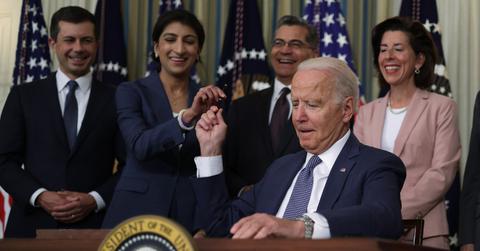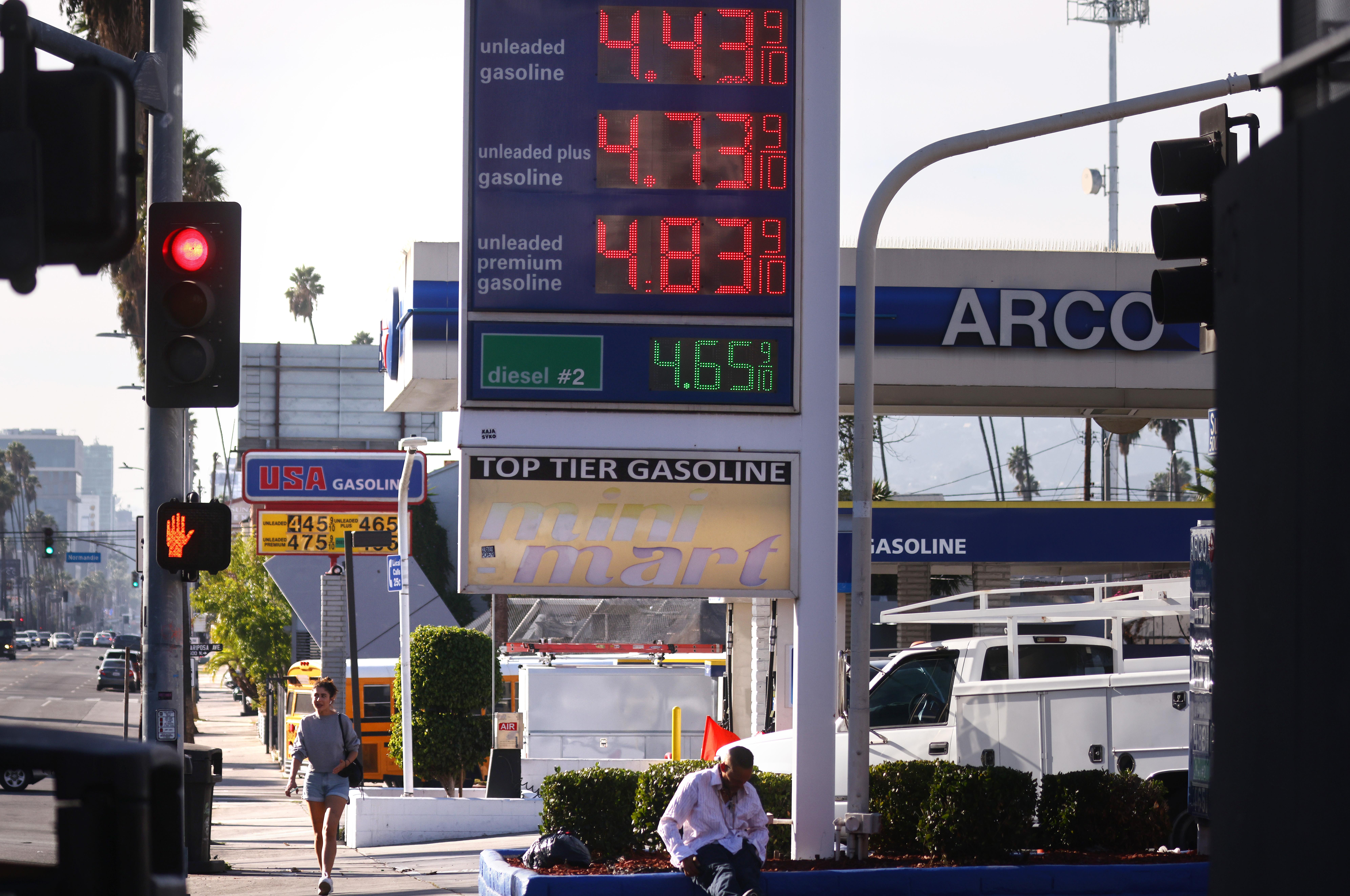Are Gas Companies Breaking Anti-Competition Law? FTC Chair to Chime In
Biden asked FTC Chair Lina Khan to investigate whether gas companies are putting undue price pressure on consumers.
Nov. 18 2021, Published 11:22 a.m. ET

As the economy starts to see the cost of oil slope downward, U.S. drivers wonder when—or if—the decrease will pass to their pockets. President Biden has asked the FTC (Federal Trade Commission) to investigate oil and gas companies to determine if they're breaking anti-competition laws.
Are oil and gas companies controlling consumer costs despite falling resource expenses? FTC Chair Lina Khan is poised to find out.
Biden asks FTC Chair Lina Khan to investigate oil and gas companies
On Nov. 17, Biden reached out to FTC Chair Lina Khan and requested an investigation into oil and gas companies.
The FTC is in charge of enforcing federal consumer protection laws, including anti-competitive business practices. Biden is concerned that prices at the gas pump are continuing to increase despite oil costs and futures decreasing. Pending investigation, this could suggest that oil and gas companies are passing undue costs onto drivers.
"Usually, prices at the pump correspond to movements in the price of unfinished gasoline," Biden wrote in a letter addressed to Khan.
Oil costs and futures are down
China has released oil reserves to reduce global costs. This factor is contributing to reduced oil costs. The cost of crude oil is down 0.03 percent on Nov. 18. Refined gasoline costs are down 0.45 percent during the same period.
Meanwhile, crude oil futures decreased on Nov. 17 in response to easing supply chain bottlenecks.
So, why are prices still increasing at the pump?
Biden wrote, "In the last month the price of unfinished gasoline is down more than 5 percent while gas prices at the pump are up 3 percent."
Biden wants to make sure that gas and oil companies aren't breaking anti-competition laws and manufacturing an inflated market more than necessary. That could be what's causing prices to continue to rise, but it requires a thorough investigation to determine if that's the case. As for consumers, waiting only makes life costlier—especially as overall inflation has increased the cost of living by 6.2 percent over the last year.
Khan is strict on anti-competition
When Khan entered her role as FTC chair this year, she had already published her strict stance on anti-competition. She published "Amazon's Antitrust Paradox" in the Yale Law Journal in 2017. In September, Khan sent a letter to the National Economic Council director stating that she was ramping up efforts for investigations into gas markets.
The FTC says that "the agency will examine potential price coordination and other collusive practices in the retail fuel industry by moving against mergers that create the opportunity for harmful pricing behavior."
Now, Biden has requested that the FTC home in on the investigation. If it can ease transportation expenses, Biden says, it's worth it. Gas companies won't have much choice but to comply, especially given that the FTC can fine $43,792 per violation per day. For mega-corporations in the oil sector, that sounds like pocket change, but economists have faith that Khan will ensure it adds up if necessary.

